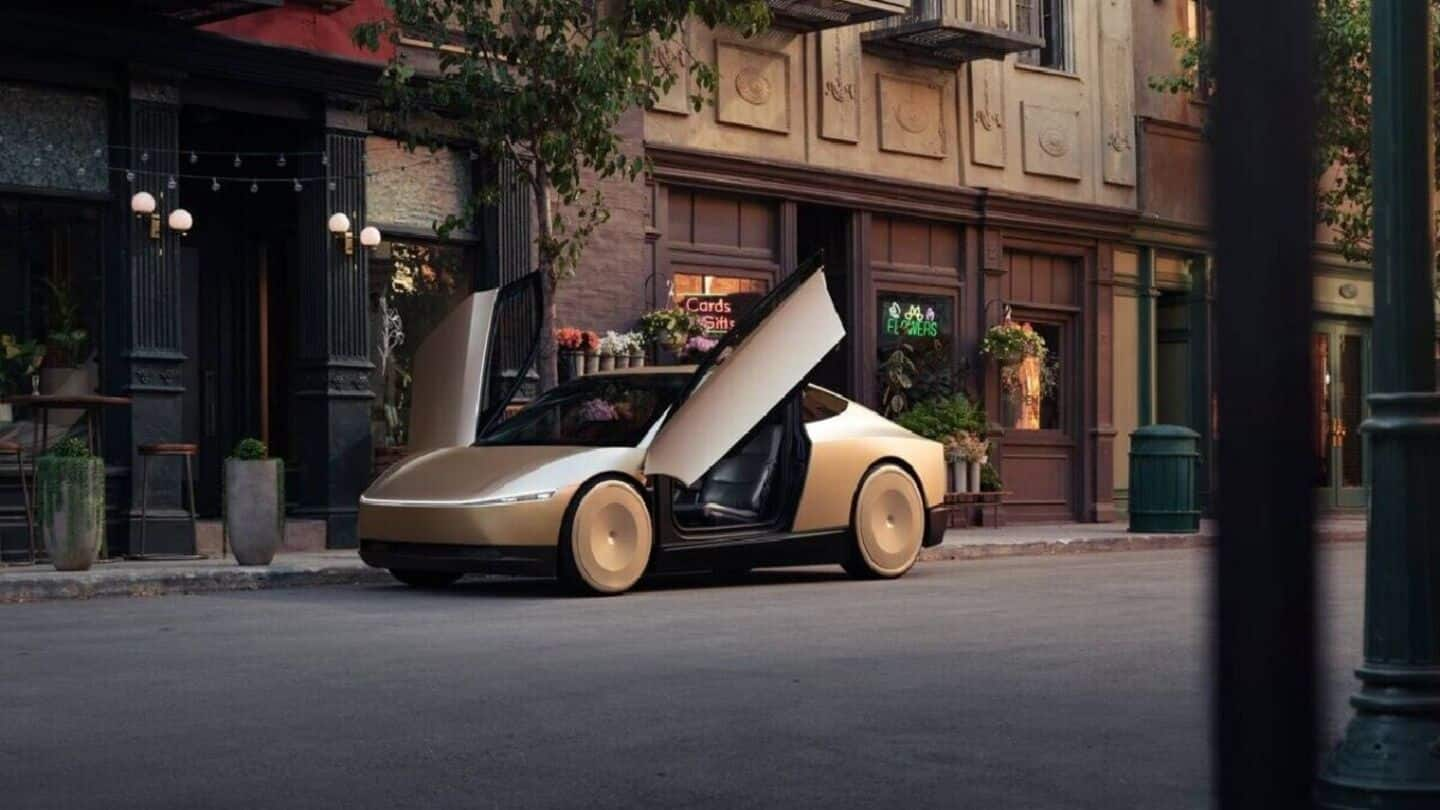
Tesla's Cybercab, with no steering wheel, enters production next year
What's the story
Tesla CEO Elon Musk has announced that the company will start producing its futuristic Cybercab in April 2026. The autonomous electric vehicle, which is designed without pedals or a steering wheel, will be manufactured at Tesla's Austin, Texas factory. The announcement was made during the company's recent shareholder meeting after shareholders approved a compensation package for Musk potentially worth up to $1 trillion in company shares.
Vehicle features
Musk's statement contradicts Tesla chairwoman's earlier remarks
Musk described the Cybercab as "the first car that is specifically built for unsupervised, full self-driving." He said it will be optimized for the lowest cost-per-mile in an autonomous mode and won't even have side mirrors. However, his statement contradicts Tesla chairwoman Robyn Denholm's recent remarks to Bloomberg that the Cybercab would come with a steering wheel and pedals as a backup plan.
Manufacturing strategy
Production line to have a cycle time of 10 seconds
Musk also revealed details about the manufacturing process of the Cybercab, saying the production line would have a cycle time of just 10 seconds. This is significantly faster than the one-minute cycle time to assemble a Model Y. He said this could result in producing anywhere between two million to three million Cybercabs in a year. Tesla first unveiled the Cybercab at its "We, Robot" event in October 2024, with plans to eventually sell these vehicles for personal use.
Service status
Regulatory approval needed for driverless rides
Currently, Tesla operates a bare-bones robotaxi service in certain parts of Austin using Model Y SUVs with an "unsupervised" version of its Full Self-Driving software. A Tesla employee sits in the passenger seat during these driverless rides. However, putting a Cybercab or any vehicle on the road without standard equipment like a steering wheel will need approval from federal regulators.